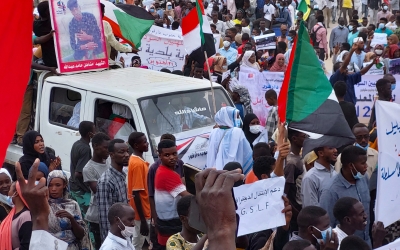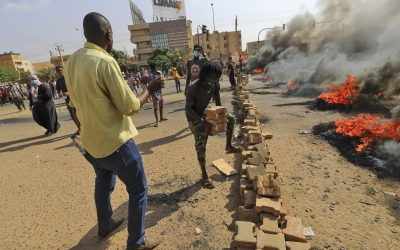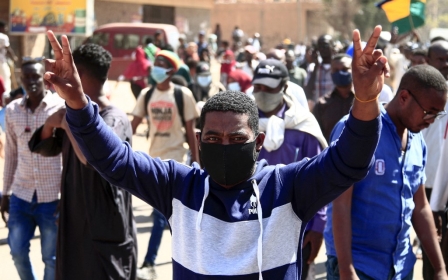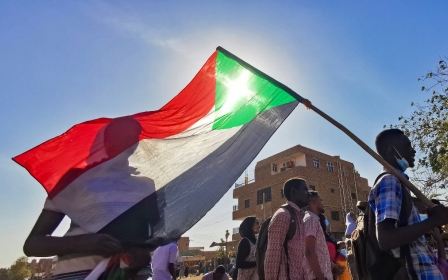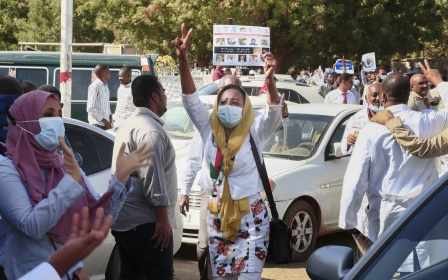US looks to target businesses linked to Sudan's military
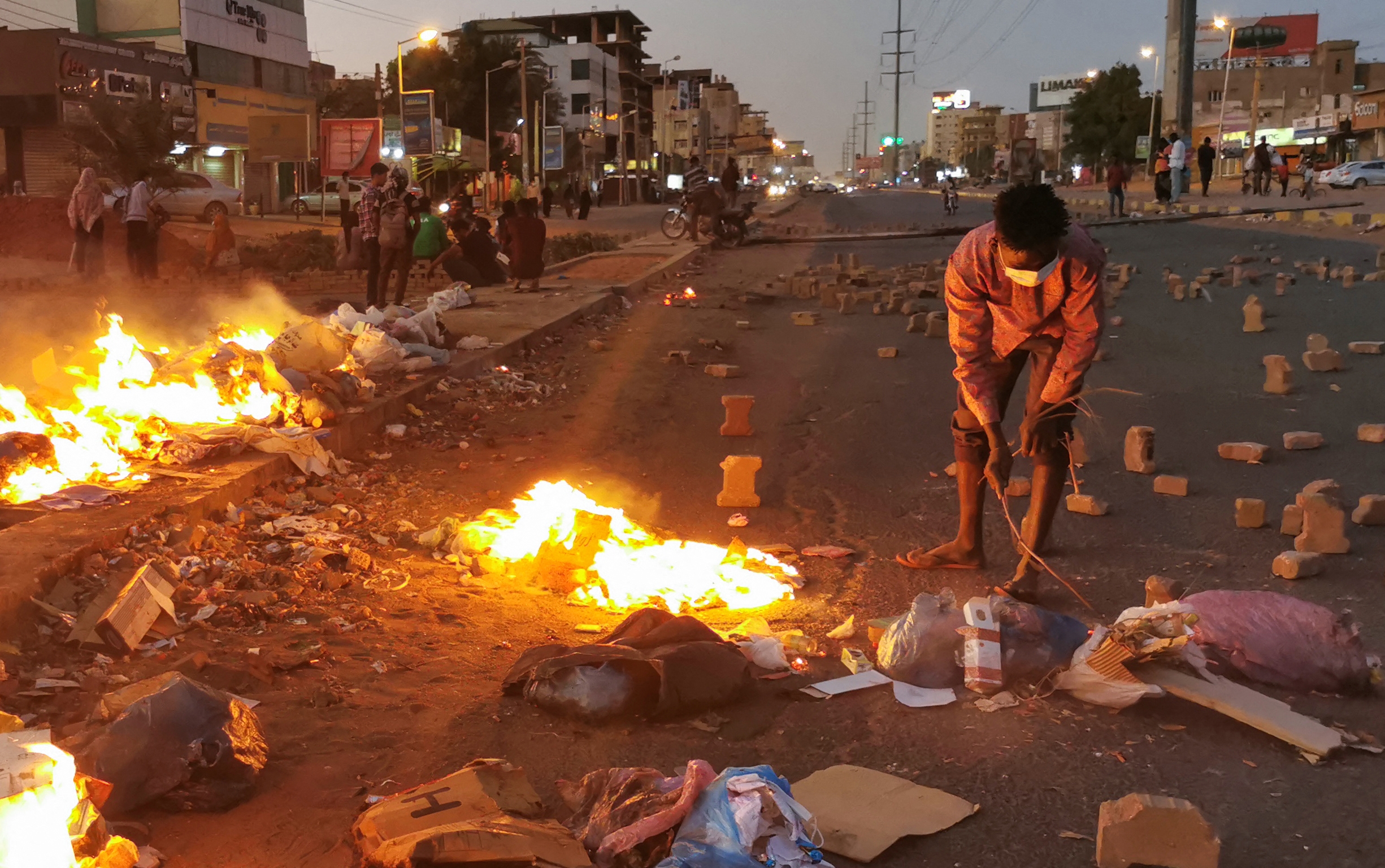
Lawmakers pressed US officials to impose personal sanctions on the military leaders of the 25 October coup in Sudan during a Senate Foreign Relations Committee hearing on Tuesday.
“Security forces continue to attack civilians, arrest civil society actors and engage in sexual violence with impunity,” Robert Menendez, chair of the committee, said at the hearing.
“Why hasn’t the administration imposed personal, targeted sanctions on those responsible for impeding Sudan’s democratic process and perpetuating human rights abuses?” he asked.
At least 79 civilians have been killed and more than 2,000 injured in crackdowns by security forces since a military-led coup in October derailed a power-sharing arrangement between the army and civilians negotiated after the 2019 removal of longtime autocrat Omar al-Bashir.
“The well-documented violence against civilians before and following the October 25 coup proves Sudan’s military junta is brutal, cannot be trusted, and is incapable of leading Sudan’s democratic transition,” Jim Risch, the top Republican on the committee, said on Tuesday.
A senior US official told lawmakers that the Biden administration was prepared to apply additional costs if the violence against civilians continued and was exploring how to target sectors in Sudan’s economy dominated by the military.
“We are now reviewing the full range of traditional and non-traditional tools at our disposal to further reduce the funds available to Sudan’s military regime,” US Assistant Secretary of State for African Affairs Molly Phee said on Tuesday.
Frozen economic assistance
Phee said some of the measures being pursued are intended to isolate the country’s military-controlled companies - which some estimate say number up to 250 - and to increase the reputational risk for those that continue to engage in "business-as-usual" with the Sudanese security services.
The US has already frozen $700m in economic assistance. US officials say they have earmarked roughly $100m of those funds to spend outside of the military-led government by training civil society actors in the country.
The World Bank suspended aid disbursements to Sudan. The International Monetary Fund has also held up its programme of nearly $50bn in debt relief for the country.
Phee said that the pause in aid and relief had left Sudan’s economy in a “precarious state” and was having an “enormous impact” on the country.
So far the security forces have shown little sign of stepping down.
'Security forces are split'
On Saturday, the deputy head of Sudan's military-led Sovereign Council, Mohamed Hamdan Dagalo, appeared to take a firmer stance on the UN’s role in the crisis when he said the organisation’s envoy should be working as a "facilitator and not a mediator”.
Asked by Republican Senator Michael Rounds if the US had good and open communication with both the civilian protesters and military-led government as it tried to resolve the crisis, Phee said “yes”.
The senior US official also acknowledged divisions within the security forces. She said that they were not monolithic and that some elements may be open to a transition, but “don’t know how to do it” and “are falling back on their old playbook”.
Phee added that these fractures may be preventing a more comprehensive effort to repress protesters inside the country.
“The fact that the security forces are split is not necessarily a positive situation,” she said, but does mean that “they may be unwilling, collectively, to do a severe repression and severe crackdown”.
Phee said it was an“immutable fact” that the protests would continue and that failure to transition to a civilian government could destabilise the region and harm Sudan’s neighbours.
A delegation of Israeli officials met with army chief General Abdel Fattah al-Burhan in Sudan last month. The two countries normalised relations last year as part of the US-brokered Abraham Accords, which Sudan’s military leaders are seen as proponents of.
“It would be helpful if Israel would use its influence to encourage the transition to go forward so then we can move forward on other important objectives like the Abraham Accords,” Phee told lawmakers.
The new US special envoy for the Horn of Africa, David Satterfield, is travelling in the region this week, planning to meet with Sudan’s neighbours and Israel as part of efforts to resolve the crisis.
Many analysts say that Sudan’s neighbours, including Egypt and the Gulf states, have welcomed the country’s slide to military rule.
“There is a false choice if they think supporting the security forces at the expense of the civilians will bring stability to Sudan, which is what they claim they seek,” Phee said.
Middle East Eye propose une couverture et une analyse indépendantes et incomparables du Moyen-Orient, de l’Afrique du Nord et d’autres régions du monde. Pour en savoir plus sur la reprise de ce contenu et les frais qui s’appliquent, veuillez remplir ce formulaire [en anglais]. Pour en savoir plus sur MEE, cliquez ici [en anglais].


